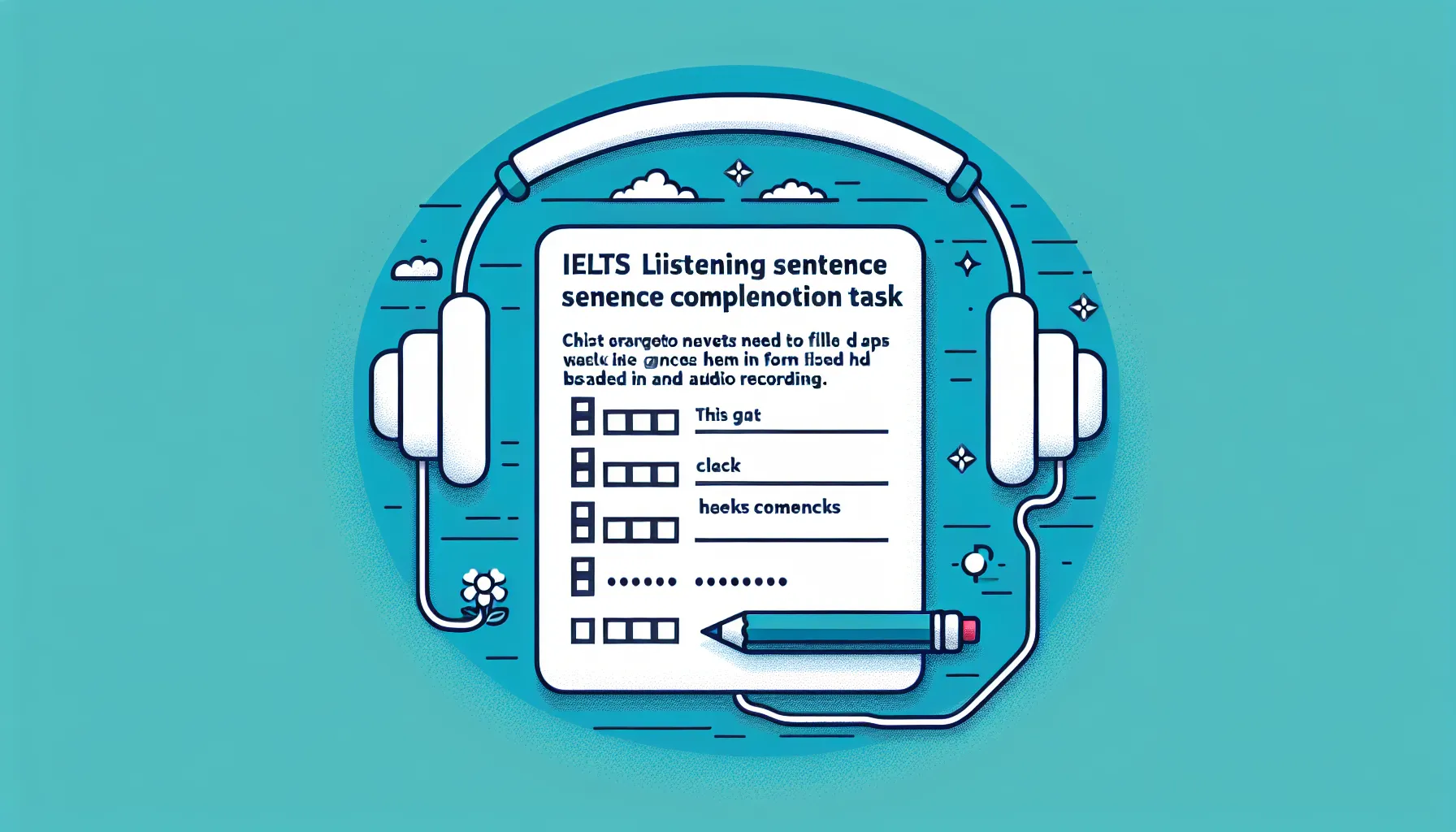Understanding Sentence Completion Tasks in IELTS Listening
Sentence completion questions are a common and challenging component of the IELTS Listening test. To achieve a band 8 score, candidates must develop specific strategies to tackle these questions effectively. This task requires you to fill in gaps within sentences using words or short phrases from the audio recording.
Key Features of Sentence Completion Questions
- Usually found in sections 2, 3, or 4 of the Listening test
- Require listening for specific information
- Often test your ability to understand main ideas and supporting details
- May involve paraphrasing or synonyms of words used in the audio

Essential Tips for Mastering Sentence Completion
1. Read and Analyze the Questions Beforehand
Take advantage of the time given before the audio begins to carefully read through the sentences. This preparation will help you:
- Identify key information you need to listen for
- Anticipate the type of words required (e.g., nouns, verbs, numbers)
- Understand the context of the sentences
2. Focus on Word Limits
Pay close attention to the word limit specified in the instructions. Typically, you’ll be asked to use no more than a certain number of words (e.g., NO MORE THAN TWO WORDS AND/OR A NUMBER). Exceeding this limit will result in a wrong answer, even if the information is correct.
3. Listen for Synonyms and Paraphrasing
Examiners often use synonyms or paraphrase information in the audio. Train yourself to recognize different ways of expressing the same idea. For example:
- “Affordable” in the question might be expressed as “reasonably priced” in the audio
- “Crucial” could be paraphrased as “of utmost importance”
4. Pay Attention to Signpost Language
Develop an ear for signpost words and phrases that indicate important information is coming up. Examples include:
- “The main reason is…”
- “It’s crucial to note that…”
- “In conclusion…”
These phrases often signal key points that are likely to be the answers you’re looking for.
5. Practice Active Listening
Engage in active listening by:
- Predicting possible answers based on the context
- Focusing on the overall meaning, not just individual words
- Staying alert for changes in topic or speaker
6. Improve Your Note-Taking Skills
Effective note-taking can significantly boost your performance. Try these techniques:
- Use abbreviations and symbols
- Focus on key words rather than full sentences
- Organize your notes spatially to match the question order
7. Be Aware of Distractors
IELTS examiners often include distractors – information that sounds relevant but isn’t the correct answer. Stay focused on the specific details required to complete the sentences accurately.
8. Review and Check Your Answers
If time allows, quickly review your answers after each section. Check for:
- Spelling errors
- Grammatical consistency with the rest of the sentence
- Adherence to word limits
Advanced Strategies for Band 8 Performance
1. Develop Your Vocabulary
Expand your vocabulary, especially in academic and professional contexts. This will help you understand a wider range of topics and recognize synonyms more easily.
2. Practice with Various Accents
IELTS Listening tests feature speakers with different English accents. Familiarize yourself with various accents by listening to podcasts, news broadcasts, and academic lectures from different English-speaking countries.
3. Improve Your Concentration
Enhance your ability to focus for extended periods. Try meditation or concentration exercises to build your mental stamina for the 30-minute listening test.
4. Analyze Your Mistakes
After each practice test, thoroughly review your errors. Understand why you made each mistake and develop strategies to avoid similar errors in the future.
5. Time Management
Practice completing sentence completion tasks within the given time frame. Develop a sense of how long to spend on each question and when to move on if you’re unsure of an answer.
Common Pitfalls to Avoid
- Don’t write more words than specified in the instructions
- Avoid changing the meaning of the sentence when filling in the blanks
- Don’t let unfamiliar vocabulary discourage you – focus on the words you do know
- Refrain from relying solely on your prior knowledge – base your answers on the audio content
Conclusion
Achieving a band 8 in IELTS Listening sentence completion tasks requires a combination of careful preparation, strategic thinking, and regular practice. By implementing these expert tips and continuously refining your skills, you’ll be well-equipped to excel in this challenging aspect of the IELTS Listening test. Remember, consistency in your preparation and a positive mindset are key to success. Keep practicing, stay focused, and approach each question with confidence.